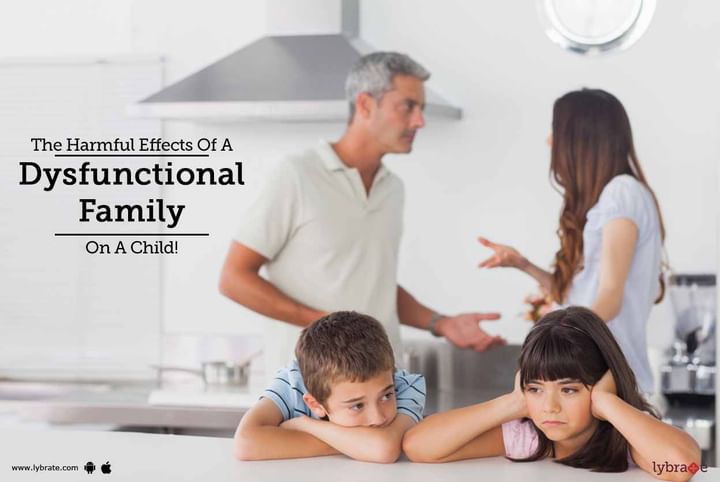The Harmful Effects Of A Dysfunctional Family On A Child!
A dysfunctional family comprises of destructive and harmful parenting along with a persistent lack of concern for the child. The harmful effects that a dysfunctional family wreaks on a child often go unnoticed and unacknowledged. In most cases, no action is taken to rectify the situation or to minimize the negative effects on the child.
When the distress caused to the child is severe and long-drawn, it may lead to the development of psychological conditions such as anxiety, depression, or post-traumatic stress disorder. If these conditions are not treated, they may affect the child for the rest of their life. Below are different types of a dysfunctional family and its impacts on the child:
- There are families where either one or both the parents are drug or alcohol addicts or possess some other kind of addiction. These addictions may cause the parent to pass out or go missing for extended spans of time, behave unexpectedly, or cause acute financial hardship for the family. Children belonging to such families grow up to be distrustful adults who believe others to be unreliable and untrustworthy.
- Children hailing from families where the parents are getting divorced are often used as pawns. The parents who are divorcing often try to turn the child against the other one, say negative things about the other parent, inhibit the child from communicating with the other parent, or coercing the child to reject the other parent altogether. Such children develop various types of mental problems when they grow up. These problems could cause irrational self-blame, self-loathing, and even drug dependence.
- There are families in which volatility and violence are predominant. Children coming from such families are also at the risk of manifesting similar behaviour patterns. When the child grows up, he or she may become rebellious and manifest anti-social behaviours such as picking up fights with peers, vandalizing property, bullying others, truancy and dropping out of an educational institution.
- Some children are forcibly detached from their parents’ care owing to various reasons such as being taken into care by someone else or sentenced to juvenile detention. Such children also tend to be unsocial when they grow up and show unexpected and undesired behaviour patterns.
- Children belonging to families where parents have a mental illness, slowly turn into the abyss of depression which, in turn, affects their own psychological development.
- On the other hand, families where the parents exercise absolute control over the child and the parents make unprecedented control of their power tend to bring up children who are mentally retarded and sick.
A child hailing from a dysfunctional family often struggles in adulthood due to lack of emotional maturity. Therefore, in the best interest of the child, measures should be taken such that the child grows up to be a healthy, stable, and responsible citizen.



+1.svg)
